 W
WValentine Bambrick VC was a recipient of the Victoria Cross, the highest and most prestigious award for gallantry in the face of the enemy that can be awarded to British and Commonwealth forces.
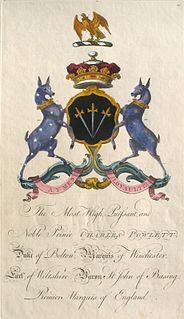 W
WCharles Powlett, 5th Duke of Bolton, styled Marquess of Winchester from 1754 to 1759, was a British soldier, nobleman and Whig politician. He was the eldest son of Harry Powlett, 4th Duke of Bolton and Catherine Parry.
 W
WCharles Christian Cameron "Nish" Bruce QGM was a British Army soldier.
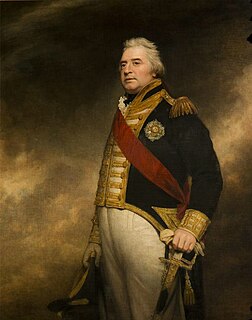 W
WAdmiral Sir George Campbell was a Royal Navy officer who went on to be Commander-in-Chief, Portsmouth.
 W
WThomas Clifford, 1st Baron Clifford of Chudleigh was an English statesman who sat in the House of Commons from 1660 to 1672 when he was created Baron Clifford.
 W
WMajor-General Robert Clive, 1st Baron Clive, also known as Clive of India, was the first British Governor of the Bengal Presidency. He is credited along with Warren Hastings for laying the foundation of the British Empire in India. He began as a writer for the East India Company (EIC) who established the military and political supremacy of the EIC by securing a decisive victory in Bengal. In return for supporting the Nawab of Bengal Mir Jafar on the throne, Clive was granted a jaghire of £30,000 per year which was the rent the EIC would otherwise pay to the Nawab for their tax farming concession, when he left India he had a fortune of £180,000 which he remitted through the Dutch East India Company. Blocking impending French mastery of India, and eventual British expulsion from the continent, Clive improvised a military expedition that ultimately enabled the EIC to adopt the French strategy of indirect rule via puppet government. Hired by the EIC to return a second time to India, Clive conspired to secure the Company's trade interests by overthrowing the ruler of Bengal, the richest state in India. Back in England, he used his treasure from India to secure an Irish barony from the then Whig PM, Thomas Pelham-Holles, 1st Duke of Newcastle, and a seat for himself in Parliament, via Henry Herbert, 1st Earl of Powis, representing the Whigs in Shrewsbury, Shropshire (1761–1774), as he had previously in Mitchell, Cornwall (1754–1755).
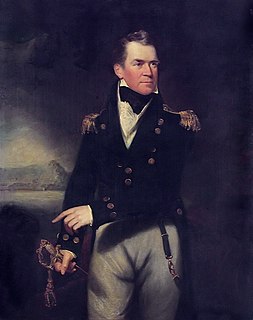 W
WSir George Ralph Collier, 1st Baronet KCB was an officer of the Royal Navy during the French Revolutionary and Napoleonic Wars, and the War of 1812. He had an eventful early life, being shipwrecked early in his career and later captured by the French. Nevertheless, he saw enough service to attract the attention of powerful patrons that secured his rise through the ranks. An officer of considerable ability, he won a noteworthy victory against a stronger French opponent, before embarking on a period of distinguished service off the Spanish and Portuguese coasts, working closely with the British generals fighting the Peninsular War, and markedly contributing to their success. His good service led to a prime posting in command of a squadron despatched to hunt down and neutralise the American super frigates during the War of 1812. He came close to capturing the USS Constitution, but lost her in circumstances that were unclear and would later return to haunt him. The years of peace that followed the end of the Napoleonic Wars saw him rewarded with a baronetcy, and his continued to serve in the navy where he was tasked with the suppression of the slave trade. The publishing of William James's account of the War of 1812, which lambasted him for incompetence and cowardice in his failure to catch the Constitution, broke his personal peace. Having failed to clear his name, and increasingly depressed by the accusations, Collier took his own life.
 W
WMajor George Frederick Myddleton Cornwallis-West was a British officer of the Scots Guards. George Cornwallis-West was noted primarily for his marriages, the first to Jennie Jerome, mother of Winston Churchill, and the second to the renowned actress Stella Campbell, who was also known on the stage as Mrs. Patrick Campbell. George Bernard Shaw wrote the part of Eliza Doolittle in his play Pygmalion for Stella Campbell.
 W
WJames Craig VC was a Scottish recipient of the Victoria Cross, the highest and most prestigious award for gallantry in the face of the enemy that can be awarded to British and Commonwealth forces.
 W
WPeter Llewelyn Davies MC was the middle of five sons of Arthur and Sylvia Llewelyn Davies, one of the Llewelyn Davies boys befriended and later informally adopted by J. M. Barrie. Barrie publicly identified him as the source of the name for the title character in his 1904 play Peter Pan, or The Boy Who Wouldn't Grow Up. This public identification as "the original Peter Pan" plagued Davies throughout his life, which ended in suicide. He was the first cousin of the English writer Daphne du Maurier.
 W
WThe Deaths at Deepcut Barracks is a series of incidents that took place involving the deaths in obscure circumstances of four British Army trainee soldiers at the Princess Royal Barracks, Deepcut in the county of Surrey, between 1995 and 2002.
 W
WGeneral Sir Beauchamp Duff was a Scottish officer with a distinguished highly decorated military career in the British Indian Army, rising to political ranks ultimately serving as Commander-in-Chief of India during the First World War, he was one of the most senior general officers. His role in the disastrous expedition to Mesopotamia was criticised helping to end a long career at the end of the Victorian era.
 W
WArthur Capell, 1st Earl of Essex, PC, also spelled Capel, of Cassiobury House, Watford, Hertfordshire, was an English statesman.
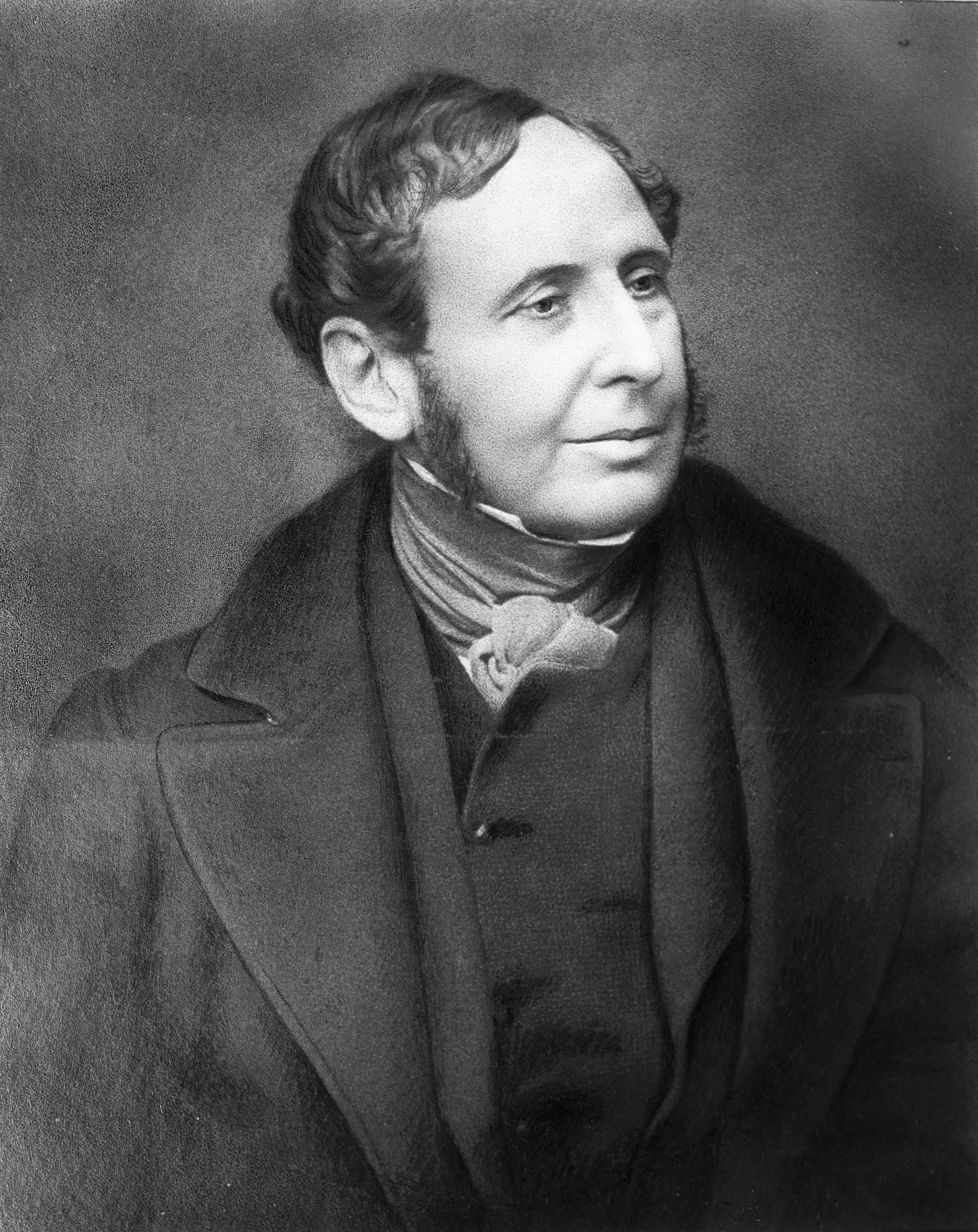 W
WVice-Admiral Robert FitzRoy was an English officer of the Royal Navy and a scientist. He achieved lasting fame as the captain of HMS Beagle during Charles Darwin's famous voyage, FitzRoy's second expedition to Tierra del Fuego and the Southern Cone.
 W
WColonel John Gurwood, British Army was a successful cavalry officer wounded at many battles on several occasions, leaving long-term emotional and physical scars. He was appointed a Companion of the Order of the Bath for his duty to the service. After Waterloo, and the re-settlement of the army on a grateful nation, Gurwood became a writer and historian. A legacy of depression and loneliness led to a tragic and untimely death.
 W
WFrederick William Hedges was a British recipient of the Victoria Cross, the highest and most prestigious award for gallantry in the face of the enemy that can be awarded to British and Commonwealth forces. A soldier with The Bedfordshire Regiment during the First World War, he was awarded the VC for his actions on 24 October 1918, during the Battle of the Selle.
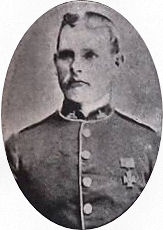 W
WRobert Jones VC was a Welsh recipient of the Victoria Cross for his actions at the Battle of Rorke's Drift in January 1879, the highest and most prestigious award for gallantry in the face of the enemy that can be awarded to British and Commonwealth forces.
 W
WMajor-General Robert George Kekewich, CB was a Victorian era British Army officer.
 W
WMajor-General Sir Hector Archibald MacDonald,, also known as Fighting Mac, was a Victorian soldier.
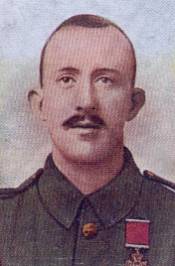 W
WFred McNess VC was an English-born Scottish recipient of the Victoria Cross (VC), the highest and most prestigious award for gallantry in the face of the enemy that can be awarded to British and Commonwealth forces.
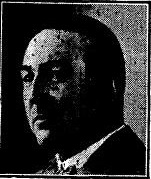 W
WHugh Mowbray Meyler was a British lawyer, army officer, balloon observer, and politician. After qualifying as a solicitor, and then serving in the British Army in the Second Boer War, he was a Unionist Party member of the first Parliament of the Union of South Africa from 1910 to 1914. After further army service in the First World War and in Ireland in the 1920s, he was the Liberal Party Member of Parliament (MP) for Blackpool in the UK from 1923 to 1924.
 W
WGeorge Augustus Frederick FitzClarence, 1st Earl of Munster, was an English peer and soldier.
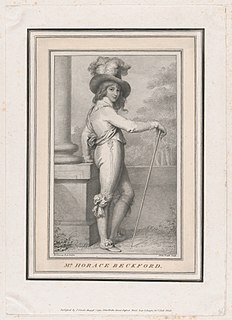 W
WWilliam Horace Pitt-Rivers, 3rd Baron Rivers, known as Horace Beckford until 1828, was a British nobleman and gambler.
 W
WStaff Sergeant Denise Michelle Rose of the Royal Military Police's Special Investigation Branch was the first British female soldier to die in military operations in the Iraq War. Her death was later ruled to have been a suicide.
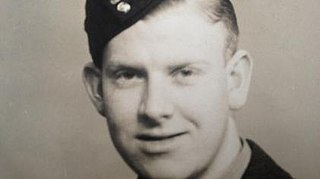 W
WFrederick "Freddie" Tees was a member of No. 617 Squadron of the Royal Air Force and who took part in Operation Chastise, the "Dambusters" raid of 1943, as a rear gunner. The raid was the inspiration for the 1955 film The Dam Busters. He ended his days as a barber in Letchworth.
 W
WCharles Wooden VC was a German-born soldier in the British Army and a recipient of the Victoria Cross, the highest award for gallantry in the face of the enemy that can be awarded to British and Commonwealth forces.
 W
WMajor Charles Allix Lavington Yate, VC was an English British Army officer and recipient of the Victoria Cross, the highest and most prestigious award for gallantry in the face of the enemy that can be awarded to British and Commonwealth forces.